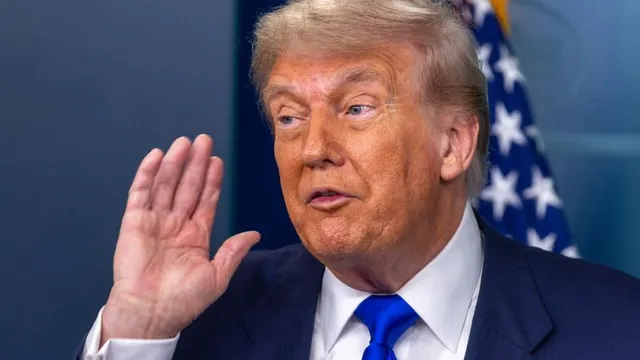
Trump threatens tariffs over Japan's rice imports
2025-07-02 00:00- Trump threatens Japan with higher tariffs over rice imports, stating they won't buy American rice.
- Japan has historically purchased significant quantities of rice from the U.S., contradicting Trump's claim.
- Critics question the validity of Trump's tariffs strategy as global trade tensions escalate.
Express your sentiment!
Insights
In recent days, President Donald Trump has made headlines by threatening to impose increased tariffs on Japanese exports to the United States. This threat stems from his claim that Japan has been unwilling to purchase American-grown rice, despite evidence to the contrary. In the previous year, Japan purchased $298 million worth of rice from the U.S. and continued to buy $114 million worth between January and April of the current year. However, the specifics of ongoing trade negotiations between the two nations remain ambiguous, as it's uncertain whether Japanese officials have signaled a halt in rice purchases. Trump's rhetoric appears timed as the July 9 deadline approaches for a 90-day pause on previously announced reciprocal tariffs affecting several countries, which had been temporarily lifted. Before this pause, Japan was facing a minimum tariff rate of 24%. Post-pause, the universal tariff rate dropped to 10%. The inconsistency in Trump's claims and the actual rice trade from Japan raises eyebrows, leading critics to question the basis of his threats. Meanwhile, French President Emmanuel Macron weighed in on the issue of tariffs at an international conference, labeling them as a form of blackmail perpetrated by powerful nations against weaker ones. He urged for a re-evaluation of the World Trade Organization to better address issues such as inequality and climate change, amid ongoing global trade tensions. His remarks, while aimed at improving international trade, coincided with Trump's aggressive tariff strategies. As the world grapples with rising trade barriers and tensions, both nations' approaches to trade and tariffs will likely continue to impact their economic relationships and the broader international trade landscape.
Contexts
The current trade relations between Japan and the United States are characterized by a complex interplay of economic ties, strategic partnerships, and ongoing negotiations. Historically, the U.S. and Japan have been major trading partners, with significant import and export activities bolstering their economies. As of June 30, 2025, the trade relationship has continued to evolve amidst global economic shifts and the pressing need for both nations to adapt to new market dynamics. Japan is a key exporter of automobiles and electronics, while the U.S. exports agricultural products, machinery, and technology. These exchanges have fostered a robust trading environment, though challenges such as tariff policies and trade imbalances have emerged periodically, prompting both nations to seek negotiations to address these issues. In recent years, trade agreements have played a vital role in shaping the bilateral relationship. The Comprehensive and Progressive Agreement for Trans-Pacific Partnership (CPTPP), in which Japan is a leading member, has provided a framework for reducing tariffs and promoting trade among Asia-Pacific nations. The U.S. has also explored separate trade agreements that aim to enhance its competitive position in the region. Despite these efforts, tensions have surfaced, particularly surrounding issues such as market access for U.S. agricultural goods and Japan's emphasis on protecting certain domestic sectors. These areas remain contentious and highlight the need for ongoing dialogue to ensure a balanced trade agreement that favors both countries. Additionally, Japan's reliance on energy imports, especially following the Fukushima disaster, has prompted the U.S. to serve as a vital energy supplier, thus reinforcing the strategic nature of the trade relationship. Furthermore, both nations have recognized the importance of innovation and technology transfer in maintaining competitive advantages in industries such as clean energy and cybersecurity. Collaboration in research and development initiatives is essential for driving economic growth and ensuring long-term sustainability in trade relations. The partnership also extends into the realm of national security, where both countries work closely on defense-related procurement and technology sharing, further intertwining their economic and strategic interests. Looking ahead, the trade relations between Japan and the United States are expected to continue to adapt to changing global economic conditions. Factors such as the rise of new economic powers, shifts in manufacturing bases, and evolving consumer preferences will influence how both nations approach trade negotiations. It will be essential for Japan and the U.S. to remain agile and transparent in their trade practices, reinforcing a positive bilateral relationship that can withstand the pressures of globalization and economic uncertainty. Ultimately, a constructive dialogue aimed at mutual benefits and adherence to fair trade principles will play a central role in shaping the future of Japan-U.S. trade relations.